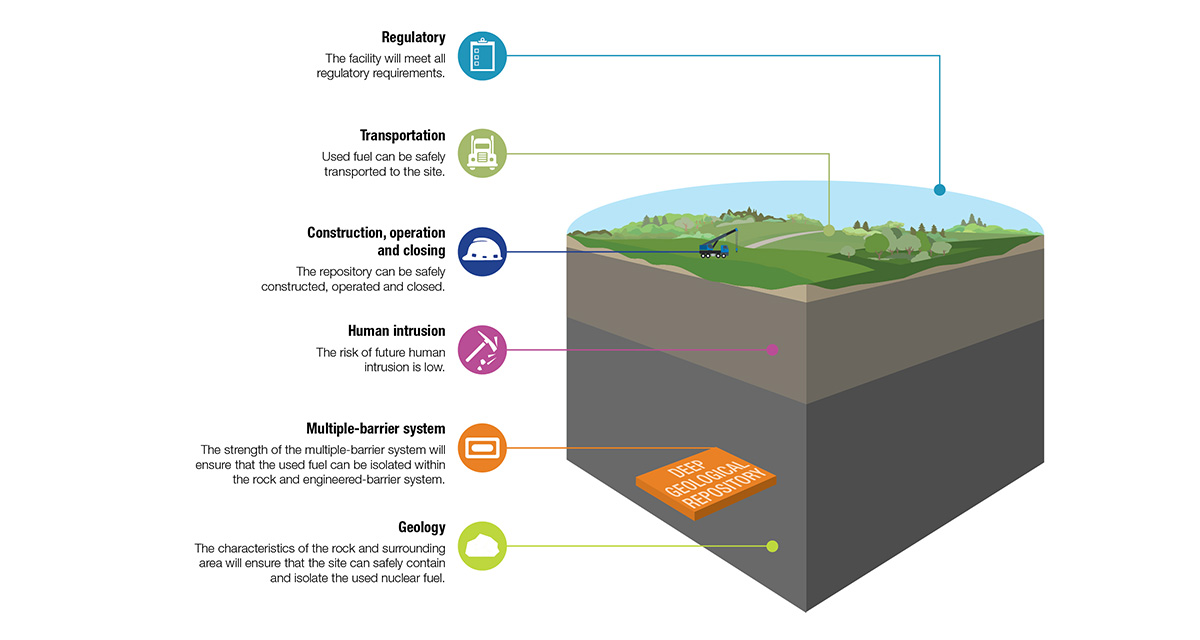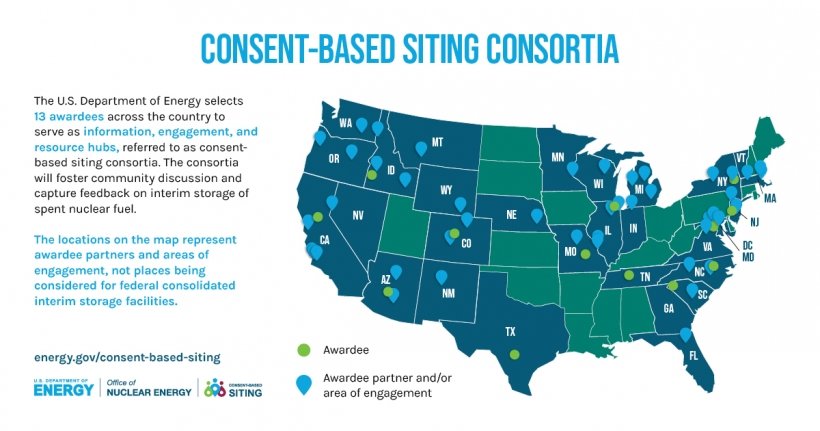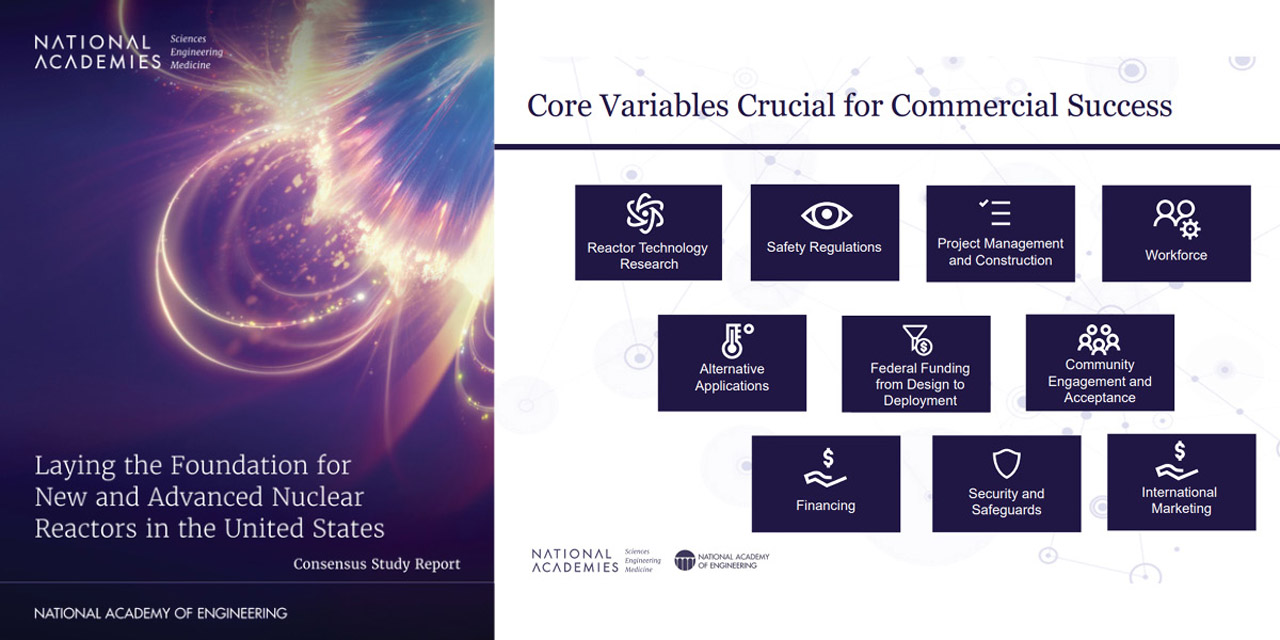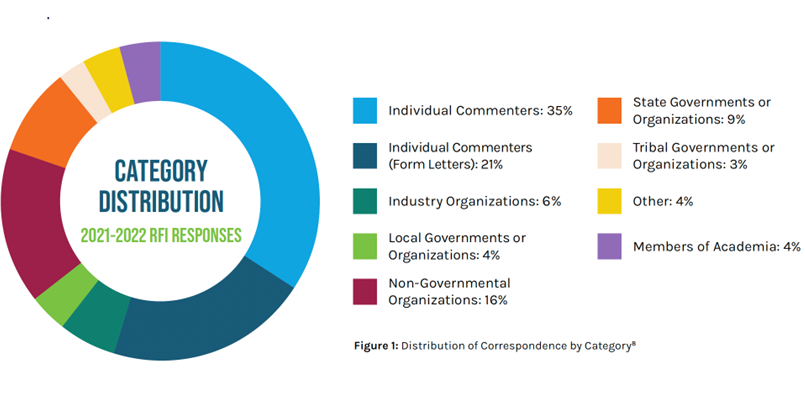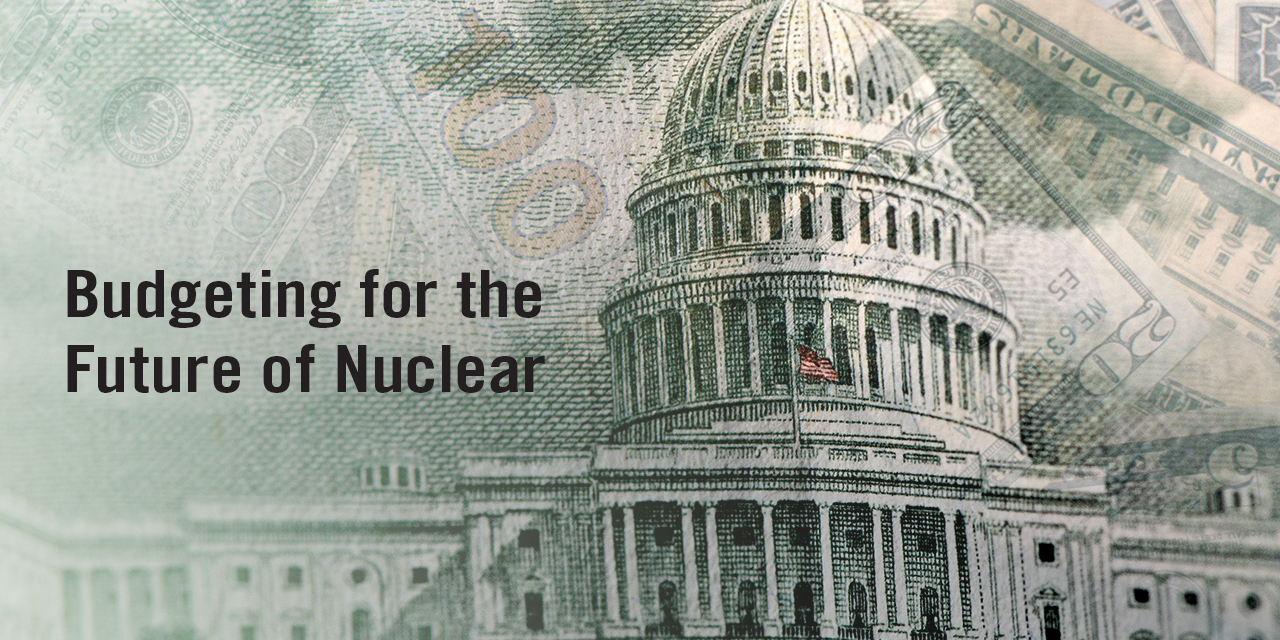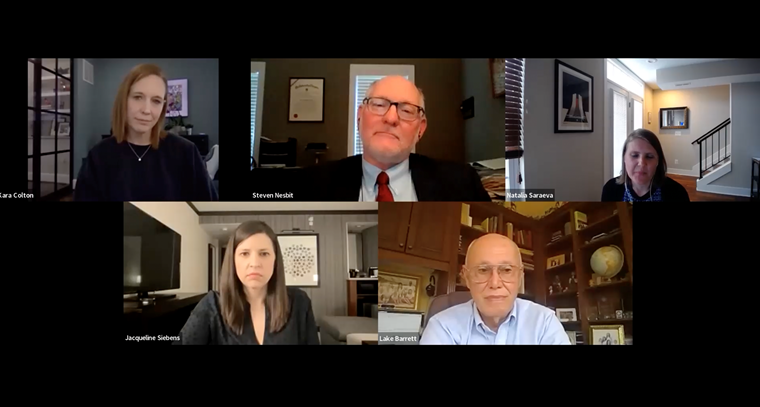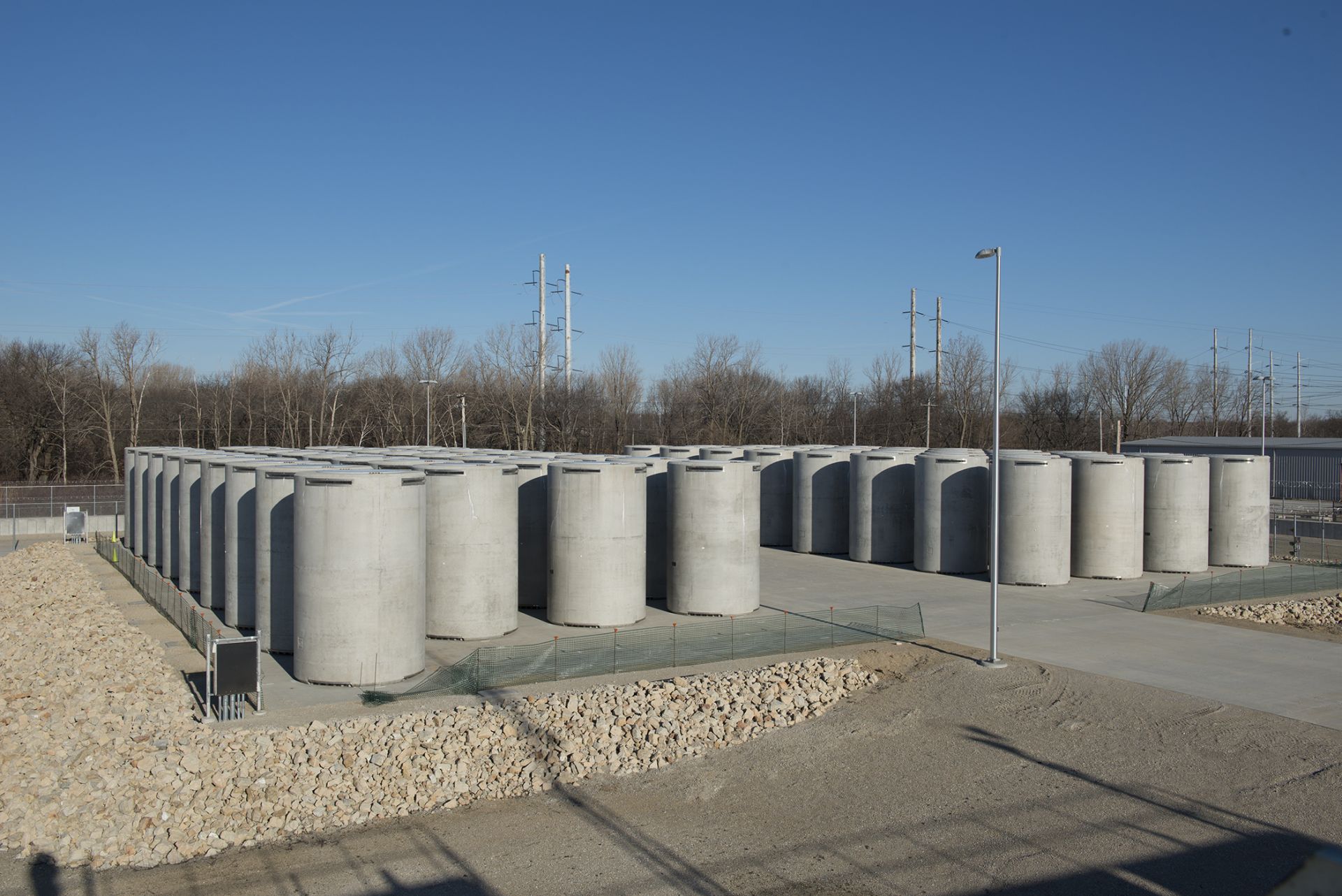The waste management panel, from left: moderator Todd Allen, Fred Dilger of Nevada, Katrina McMurrian of the NWSC, the DOE’s Paul Murray, Jenifer Shafer of ARPA-E, and Kuhika Gupta of the University of Oklahoma. (Photo: ANS)
With increasing demand for clean, reliable, and safe sources of energy, the conversation around nuclear energy is changing. And so too is the conversation around nuclear waste, even as the country struggles to find a path for the disposal of its spent nuclear fuel and high-level radioactive waste. From community engagement, to recycling, to existing success around other forms of nuclear waste management, the conversation around nuclear waste has many different angles, and an executive session of the American Nuclear Society’s 2024 Annual Conference in Las Vegas aimed to delve into some of those discussions.
An illustration of a planned deep geologic repository for Canada’s spent nuclear fuel. (Image: NWMO)
Canada’s Nuclear Waste Management Organization, a not-for-profit organization responsible for the long-term management of the country’s intermediate- and high-level radioactive waste, is set to select a site for a deep geologic repository by the end of the year.
This slide on the right from the consensus committee’s public briefing identifies 10 core variables that are important to the success of advanced reactor deployments. (Image: NASEM, Laying the Foundation for New and Advanced Nuclear Reactors in the United States)
A screenshot of the panelists for the ANS spent fuel management webinar.
The Department of Energy’s new consent-based process for siting an interim storage facility for the nation’s spent nuclear fuel faces many challenges, but it could be successful if correctly implemented by the department, according to the panelists of the American Nuclear Society’s webinar “Spent Nuclear Fuel Management: Wasting Away or Chance for Progress?” ANS President Steve Nesbit moderated the webinar, held on March 23.
Spent fuel in dry storage at the decommissioned Zion site in Illinois awaits a permanent home. (Photo: EnergySolutions)
The deadline for submitting comments on the Department of Energy’s request for information on using a consent-based approach to siting federal facilities for the interim storage of spent nuclear fuel is Friday, March 4.





